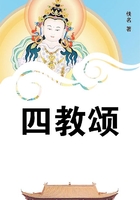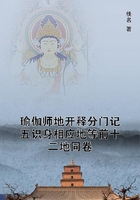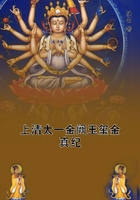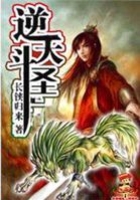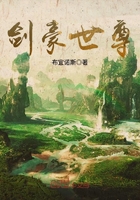We must not regard a myth as necessarily late or necessarily foreign because we first meet it in an "Orphic composition". If the myth be one of the sort which encounter us in every quarter, nay, in every obscure nook of the globe, we may plausibly regard it as ancient. If it bear the distinct marks of being a Neo-platonic pastiche, we may reject it without hesitation. On the whole, however, our Orphic authorities can never be quoted with much satisfaction. The later sources of evidence for Greek myths are not of great use to the student of cosmogonic legend, though invaluable when we come to treat of the established dynasty of gods, the heroes and the "culture-heroes". For these the authorities are the whole range of Greek literature, poets, dramatists, philosophers, critics, historians and travellers. We have also the notes and comments of the scholiasts or commentators on the poets and dramatists. Sometimes these annotators only darken counsel by their guesses. Sometimes perhaps, especially in the scholia on the Iliad and Odyssey, they furnish us with a precious myth or popular marchen not otherwise recorded. The regular professional mythographi, again, of whom Apollodorus (150B.C.) is the type, compiled manuals explanatory of the myths which were alluded to by the poets. The scholiasts and mythographi often retain myths from lost poems and lost plays. Finally, from the travellers and historians we occasionally glean examples of the tales ("holy chapters," as Mr. Grote calls them) which were narrated by priests and temple officials to the pilgrims who visited the sacred shrines.
These "chapters" are almost invariably puerile, savage and obscene.
They bear the stamp of extreme antiquity, because they never, as a rule, passed through the purifying medium of literature. There were many myths too crude and archaic for the purposes of poetry and of the drama. These were handed down from local priest to local priest, with the inviolability of sacred and immutable tradition. We have already given a reason for assigning a high antiquity to the local temple myths. Just as Greeks lived in villages before they gathered into towns, so their gods were gods of villages or tribes before they were national deities. The local myths are those of the archaic village state of "culture," more ancient, more savage, than literary narrative. Very frequently the local legends were subjected to the process of allegorical interpretation, as men became alive to the monstrosity of their unsophisticated meaning. Often they proved too savage for our authorities, who merely remark, "Concerning this a certain holy chapter is told," but decline to record the legend. In the same way missionaries, with mistaken delicacy, often refuse to repeat some savage legend with which they are acquainted.
The latest sort of testimony as to Greek myths must be sought in the writings of the heathen apologists or learned Pagan defenders of Paganism in the first centuries during Christianity, and in the works of their opponents, the fathers of the Church. Though the fathers certainly do not understate the abominations of Paganism, and though the heathen apologists make free use of allegorical (and impossible) interpretations, the evidence of both is often useful and important. The testimony of ancient art, vases, statues, pictures and the descriptions of these where they no longer survive, are also of service and interest.
After this brief examination of the sources of our knowledge of Greek myth, we may approach the Homeric legends of the origin of things and the world's beginning. In Homer these matters are only referred to incidentally. He more than once calls Oceanus (that is, the fabled stream which flows all round the world, here regarded as a PERSON) "the origin of the gods," "the origin of all things". That Ocean is considered a person, and that he is not an allegory for water or the aqueous element, appears from the speech of Hera to Aphrodite: "I am going to visit the limits of the bountiful earth, and Oceanus, father of the gods, and mother Tethys, who reared me duly and nurtured me in their halls, when far-seeing Zeus imprisoned Cronus beneath the earth and the unvintaged sea". Homer does not appear to know Uranus as the father of Cronus, and thus the myth of the mutilation of Uranus necessarily does not occur in Homer. Cronus, the head of the dynasty which preceded that of Zeus, is described as the son of Rhea, but nothing is said of his father. The passage contains the account which Poseidon himself chose to give of the war in heaven:
"Three brethren are we, and sons of Cronus whom Rhea bare--Zeus and myself, and Hades is the third, the ruler of the folk in the underworld. And in three lots were all things divided, and each drew a domain of his own." Here Zeus is the ELDEST son of Cronus.
Though lots are drawn at hazard for the property of the father (which we know to have been customary in Homer's time), yet throughout the Iliad Zeus constantly claims the respect and obedience due to him by right of primogeniture. We shall see that Hesiod adopts exactly the opposite view. Zeus is the YOUNGESTchild of Cronus. His supremacy is an example of jungsten recht, the wide-spread custom which makes the youngest child the heir in chief. But how did the sons of Cronus come to have his property in their hands to divide? By right of successful rebellion, when "Zeus imprisoned Cronus beneath the earth and the unvintaged sea".
With Cronus in his imprisonment are the Titans. That is all that Homer cares to tell about the absolute beginning of things and the first dynasty of rulers of Olympus. His interest is all in the actual reigning family, that of the Cronidae, nor is he fond of reporting their youthful excesses.
Iliad, xiv. 201, 302, 246.

